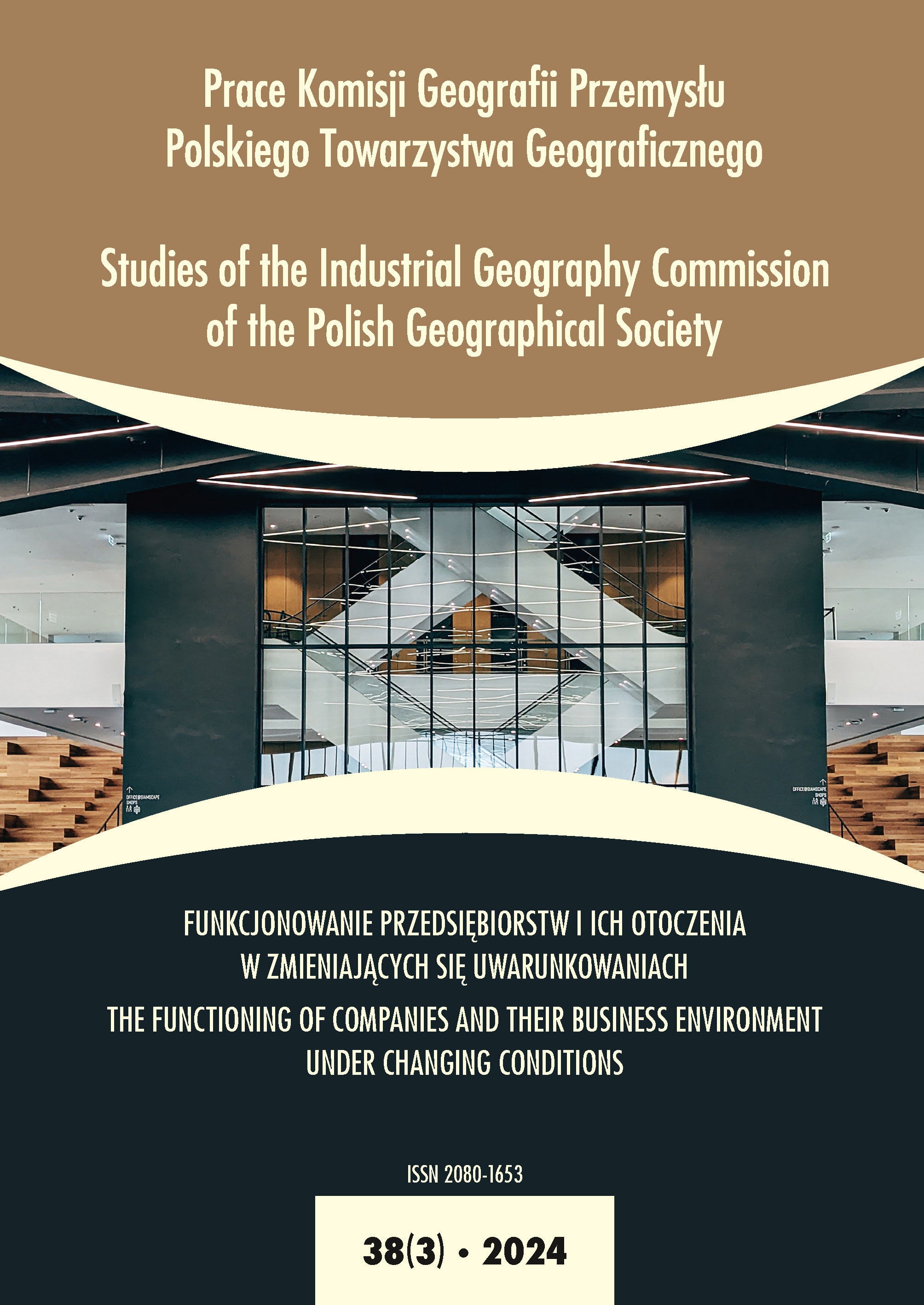Sustainable development in the beauty industry: awareness and practices of beauty salons in Tarnów
DOI:
https://doi.org/10.24917/20801653.383.5Keywords:
sustainable development, ecological cosmetics, ecological awareness, beauty salons, environmental protectionAbstract
Purpose of the research: The aim was to show how beauty salons in Tarnów implement the principles of sustainable development and what the preferences and awareness of salon owners and employees are regarding ecological products. The research was conducted using an online survey that was sent to over 110 beauty service points in Tarnów. Results: Over half of the respondents had heard about the ideas of sustainable development, but only 7% were well acquainted with its principles in the beauty industry. Most of the surveyed salons declared the use of organic cosmetics, mainly due to customer demand. The main obstacles to the use of organic cosmetics are higher purchase prices and access to good quality organic cosmetics. More than half of beauty salons take steps to reduce plastic use, and electricity and water consumption. Conclusions: Beauty salons in Tarnów implement the principles of sustainable development, but they still encounter barriers such as high costs and the limited availability of ecological products. Most owners and employees are aware of the importance of these principles and take action to protect the environment, but there is a need for further education and support regarding the availability and prices of ecological cosmetics.
Downloads
Metrics
References
Bojarczuk, D., Smalej‑Kołodziej, O. (2020). Identyfikacja oddziaływania informacji zawartych na opakowaniach kosmetyków na decyzje nabywcze młodych konsumentek. Zeszyty Naukowe Uniwersytetu Ekonomicznego w Krakowie, 5, 101–121.
Boucher, J., Friot, D. (2017). Primary microplastics in the oceans: A global evaluation of sources. IUCN: Gland, Switzerland.
Bugla‑Płoskońska, G., Hawryłkiewicz, W., Drąg, G. (2012). Składniki naturalne w kosmetykach – receptury, przykłady zastosowań. Kosmetologia estetyczna, 2.
Bugwandin, V., Bayat, M.S. (2022). A sustainable business strategy framework for small and medium enterprises. Acta Commercii, 22(1), a1021, 1–12.
Commit for Our Planet. (2022). Cosmetics Europe brings together industry action on sustainability through. Pozyskano z: https://commitforourplanet.cosmeticseurope.eu/ (dostęp:
07.2024).
Grysiak, A. (2022). Nowe badanie sugeruje, że kupujący nie ufają twierdzeniom o zrównoważonym rozwoju (2022). Pozyskano z: https://www.wiadomoscikosmetyczne.pl/ producent‑kosmetykow/nowe‑badanie‑ sugeruje‑ze‑kupujacy‑nie‑ufaja‑twierdzeniom‑o‑zrownowazonym‑rozwoju‑2367156 (dostęp: 2.07.2024).
Jinkyung Lee, J., Han Kwon, K. (2022). Sustainable changes in beauty market trends focused on the perspective of safety in the post‑coronavirus disease‑19 period. Journal of Cosmetic Dermatology, 21, 2700–2707.
Kim, Y.‑J., Lee, J.‑H., Lee, S.‑G., Lee, H.‑H. (2021). sustainable competitive strategies in the beauty service industry: A SWOT‑AHP approach. Sustainability, 13, 10852.
Kryczka, M. (2021). Rynek usług kosmetycznych – uwarunkowania i perspektywy rozwoju w ocenie właścicieli salonów kosmetycznych. Studium przypadku. Aesthetic Cosmetology and Medicine, 1, 10(5), 225–233. doi: https://doi.org./10.52336/acm.2021.10.5.03
L’Oréal Finance. Social & environmental performance. Pozyskano z: https://www.loreal‑finance. com/en/annual‑report‑2023/social‑environmental‑ performance/ (dostęp: 2.07.2024).
Matusiak, K. (2023). Korzyści z wprowadzania zasad zrównoważonego rozwoju w przemyśle kosmetycznym. Świat Przemysłu Kosmetycznego, 1.
Pandey, A. (2023). How sustainability is finding its way into hair & beauty business. Pozyskano z: https://economictimes.indiatimes.com/small‑biz/sustainability/how‑sustainability‑isfinding‑its‑way‑into‑hair‑beauty‑ business/articleshow/106076446.cms?utm_source=contentofinterest&utm_medium=te xt&utm_campaign=cppst (dostęp: 2.07.2024).
Platta, A., Żyngiel, W. (2014). Oczekiwania konsumentów wobec preparatów kosmetycznych pochodzenia naturalnego wykorzystywanych w zabiegach SPA & Wellness. Handel Wewnętrzny, 1, 324–333.
Polski Związek Przemysłu Kosmetycznego. (2012). Dobra praktyka zrównoważonego rozwoju (zr) dla przemysłu kosmetycznego. Pozyskano z: https://kosmetyczni.pl/uploads/dokumenty/Dobra_praktyka_Zrownowanonego_Rozw oju_CE_PZPK_2012.pdf (dostęp: 2.07.2024).
Siekierski, M. (2011). Rynek kosmetyków naturalnych. Chemia i Biznes, 2.
Sustainability Sector Index 2022. (2022). Zrównoważony rozwój: od ambicji do działań marki. Pozyskano z: https://sustainabilitysectorindex2022.kantarpolska.pl/ (dostęp: 2.07.2024).
United Nations. (1987). Our common future [Nasza wspólna przyszłość]. Raport Brundtland, 1987. Pozyskano z: https://sustainabledevelopment.un.org/content/documents/5987our‑common future.pdf (dostęp: 2.07.2024).
Downloads
Published
How to Cite
Issue
Section
License
Copyright (c) 2024 Studies of the Industrial Geography Commission of the Polish Geographical Society

This work is licensed under a Creative Commons Attribution-NoDerivatives 4.0 International License.
Articles are published under the terms of the Creative Commons License (CC BY-ND 4.0; Attribution– NoDerivs).

